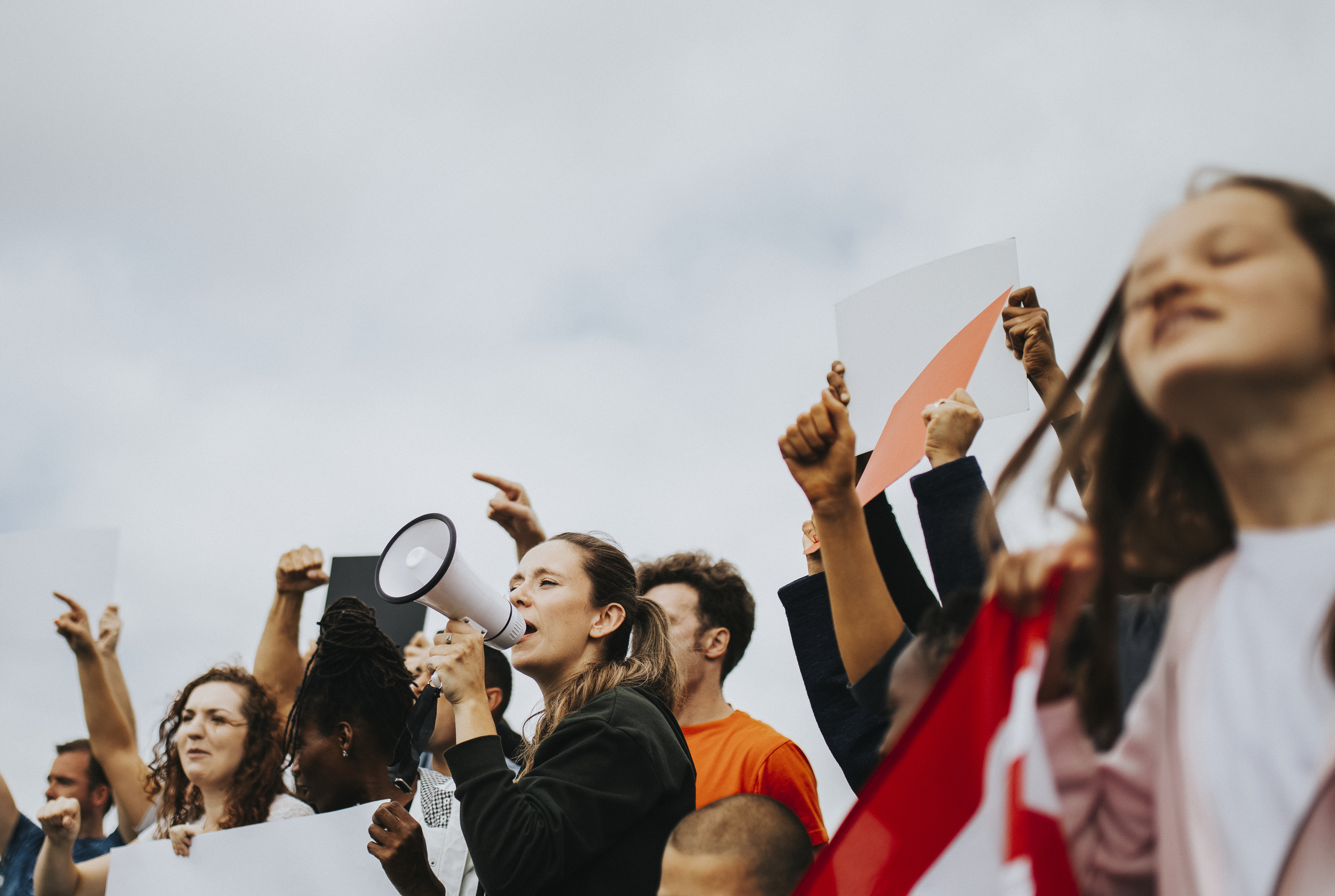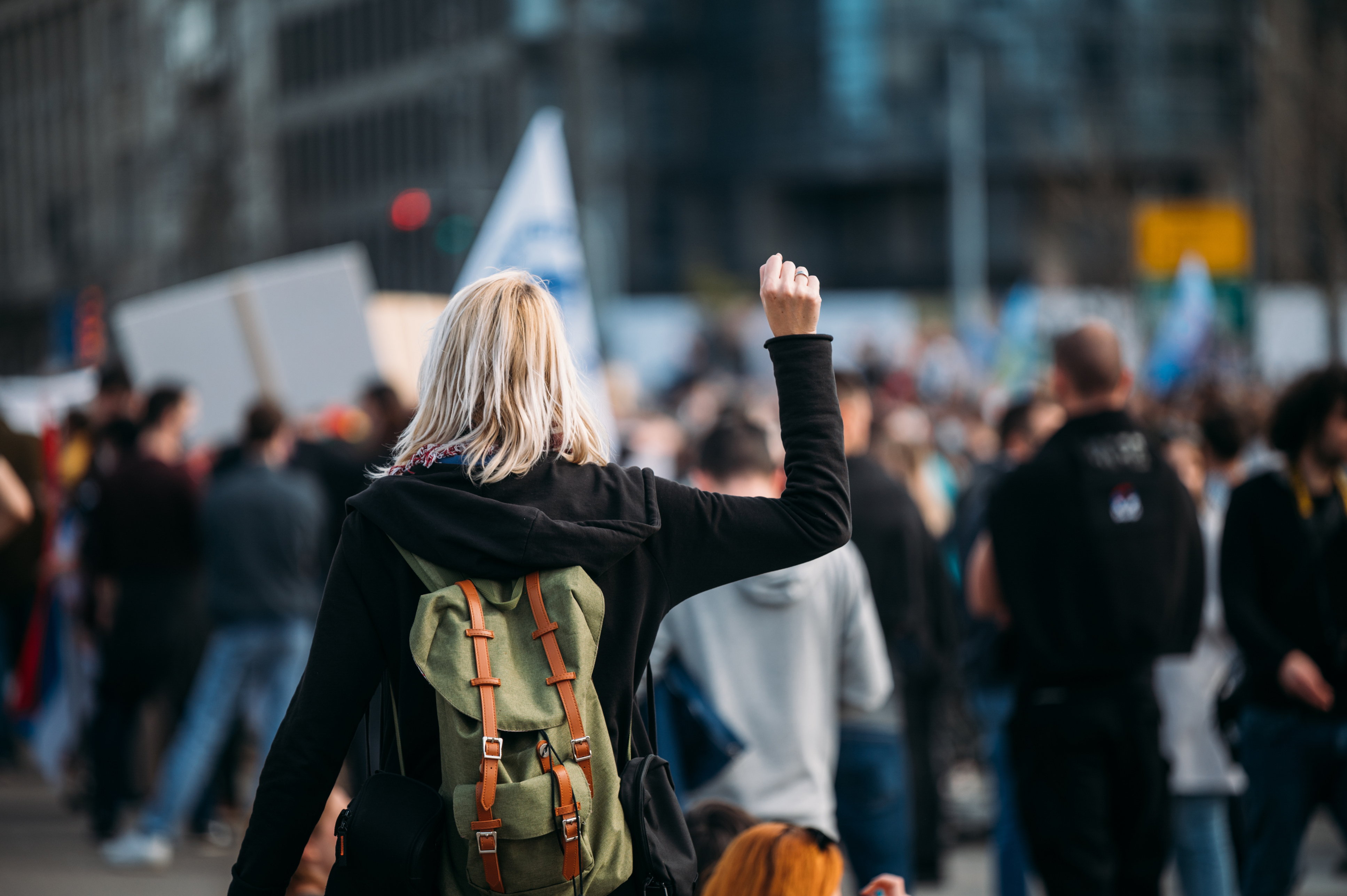
Organizing a Demonstration:
The PLT is an integral part of the EPS. This team is committed to reaching out to community stakeholders to support planning and appropriate EPS response for demonstrations, events, marches, and labour disputes. The PLT focuses on building relationships with Edmonton’s communities to establish and maintain communication with all stakeholders who may be affected. The PLT provides an essential service, acting as the connection between organizers of a demonstration, the public and the police to ensure peaceful demonstrations. This includes:
- Ensuring a safe and secure environment for all participants and the community at large
- Aiming to minimize disruption for Edmonton’s residents, businesses, and visitors
- Operating from a lens of equity and impartiality
The PLT consists of a Staff Sergeant, Sergeant, two Constables and a small group of other EPS members.
Things to consider:
Organizers are encouraged to contact the PLT to work with the police to plan their demonstration within the legal framework.
Email: PLT@edmontonpolice.ca
If the demonstration / event is on City of Edmonton property, review the following link: City of Edmonton Festivals and Events Planning
If the demonstration / event is being held at the Legislative Grounds, review the following link: Legislature Grounds – Book an Event Space

The Charter of Rights and Freedoms: Know your Rights
The EPS supports the guaranteed rights of all persons to freedom of association, expression, and peaceful assembly under the Canadian Charter of Rights and Freedoms:
- Freedom of Conscience and Religion
- Freedom of thought, belief, opinion and expression, including freedom of the press and other media communication
- Freedom of Peaceful assembly
- Freedom of Peaceful association
You can:
- Gather peacefully to assert your rights
- Express our thoughts, beliefs and opinions
- Get your message out in a lawful way
- Have freedom of association
However, such rights are not without limit. Everyone must still act within the law.
While respecting individual rights, the EPS must also consider the rights of the broader community and how those may be affected or infringed by individual or group actions.
The EPS strives to balance individual rights, while recognizing the rights of the general public, local residents and businesses, with the primary purpose of preserving peace, protecting life and property, and enforcing the law.
You can’t:
- Block traffic
- Cause a disturbance
- Wear a mask or disguise you face
- Disobey a court order
- Harm or injure anyone
- Carry weapons
- Trespass on private property
- Impede a parade
Consider your actions:
Demonstrating unlawfully can impact your future. Utilizing police discretion in alignment with the public interest is a critical aspect of de-escalating conflicts and efficiently managing limited police resources.
Bylaw and provincial offence tickets may be issued during a demonstration or event, and arrests and criminal charges may also result the same day or at later date, after the demonstration or other event has concluded.
Criminal Code Sections
The following is a non-exhaustive list of some of the Criminal Code sections that may apply:
- Blocking or obstructing a highway (Section 423(1)(g))
- Causing a disturbance (Section 175)
- Common nuisance (Section 180)
- Interfering with transportation facilities (Section 248)
- Breach of the peace (Section 31)
- Offensive volatile substance (Section 178)
- Taking part in a riot (Sections 65, 68)
- Unlawful assembly (Section 63)
- Criminal harassment (Section 264)
- Public incitement of hatred (Section 319)
- Obstruction or interference with access to health services (Section 423.2)
Traffic Impacts:
Demonstration activities may impact the normal flow of traffic. The EPS will act to minimize the impact to the public and ensure public safety.
The EPS’s objective in policing any road closure / blockade is to restore the orderly flow of traffic in the safest manner possible. Demonstration activities that affect critical infrastructure, such as major roadways to a hospital will not be tolerated.